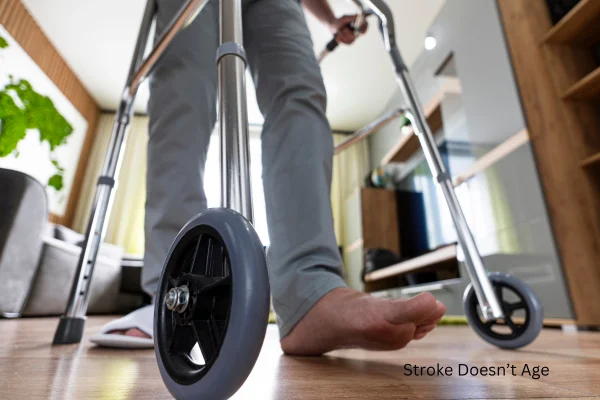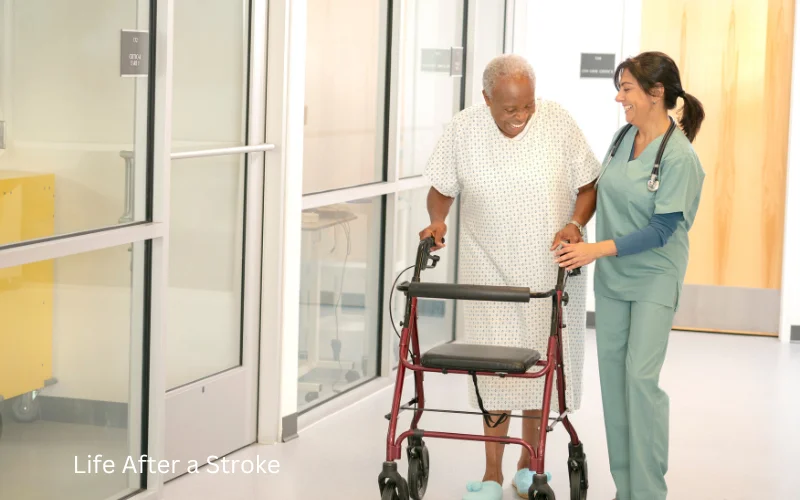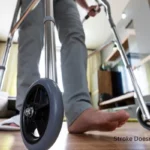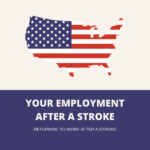Recognizing Decline After a Stroke & What to Do

If you or a loved one has gone through this kind of serious crisis, you know recovery often unfolds as a long, winding journey. Many regain function gradually through therapy and consistent effort, yet unexpected setbacks can still appear. Such hurdles may feel frustrating or overwhelming, but noticing early warning signs and acting quickly can create powerful momentum toward better outcomes.
In this guide, we’ll explore warning signs, reasons behind such shifts, and ways to slow or even improve ongoing changes. Whether you’re healing, standing beside a loved one, or simply staying informed, this article will give you clear insight into what to watch for and how to stay proactive.
Understanding Recovery and Setbacks
Before exploring warning signs, let’s look at what unfolds after such a crisis. When this occurs, blood flow reaching a region of your brain becomes disrupted, causing damage within nearby cells. Extent of recovery depends on severity of that incident, specific regions impacted, and how quickly treatment arrives.
For many individuals, the first few months are crucial for regaining lost abilities through rehabilitation. However, not everyone follows a straight path to recovery—some make progress, only to face unexpected setbacks.
Facing challenges after such an event isn’t unusual, but it’s essential to assess whether it’s a short-term hurdle or something more significant.
1. Sudden or Gradual Loss of Mobility
One major warning sign involves difficulty with movement. If someone who once walked short distances or moved arms with ease begins to struggle again, it signals a concerning shift that deserves prompt attention.
Warning signs:
- Increased difficulty walking, even with assistance
- Weakness or stiffness in arms or legs that had improved
- More frequent falls or loss of balance
- Difficulty standing up from a chair or getting into bed
Why it happens:
- Muscle weakness from lack of use (known as learned non-use)
- Secondary strokes or other brain damage
- A buildup of spasticity (muscle stiffness)
What to do:
If you notice a sudden loss of mobility, call a doctor immediately—it could be a sign of another stroke. If the decline is gradual, increasing physical therapy and movement exercises can help prevent further muscle loss.
2. Worsening Speech and Communication Issues
After an event like this, many individuals experience aphasia (difficulty speaking or understanding language). If communication had been getting better but then starts to worsen, it could indicate cognitive or neurological concerns.
Warning signs:
- Trouble finding words more often than before
- Increased slurring or difficulty forming sentences
- Struggling to understand spoken or written language
- Not responding to questions or conversations like before
Why it happens:
- Another stroke or mini-stroke (transient ischemic attack, or TIA)
- Fatigue or stress affecting brain function
- Dementia or other cognitive decline
What to do:
- Keep practicing speech therapy exercises
- Engage in conversation regularly to keep the brain active
- If symptoms suddenly worsen, seek medical attention immediately

3. Increased Fatigue and Low Energy Levels
Many individuals in recovery often feel fatigued, but if exhaustion worsens instead of improving, it’s worth addressing.
Warning signs:
- Sleeping more than usual
- Feeling exhausted even after minor activities
- Lack of motivation to engage in therapy or social activities
Why it happens:
- Depression (which is common after a stroke)
- Poor circulation or low oxygen levels
- Heart problems or other medical conditions
What to do:
- Rule out medical issues like heart disease
- Encourage gentle exercise to boost energy
- Address mental health concerns like depression
4. Cognitive Decline and Memory Loss
Cognitive issues can develop after an event like this, and for some, they worsen over time. Related dementia is a real concern, making early detection crucial.
Warning signs:
- Forgetting names, appointments, or important details
- Difficulty following instructions or conversations
- Confusion in familiar places
- Struggling with problem-solving or decision-making
Why it happens:
- Another crisis impacting cognitive regions inside your brain
- Progressive neurological diseases (like vascular dementia)
- Medication side effects
What to do:
- Get a neurological evaluation to rule out other conditions
- Engage in brain-stimulating activities (puzzles, reading, socializing)
- Ensure medications are not causing cognitive side effects
5. Mood Changes, Depression, and Anxiety
Emotional changes are common after such an event, but if someone becomes more withdrawn, irritable, or shows signs of depression, it could indicate a deeper issue.
Warning signs:
- Increased irritability or mood swings
- Loss of interest in hobbies or socializing
- Frequent sadness, hopelessness, or crying
- Anxiety about daily activities or fear of falling
Why it happens:
- Chemical imbalances in the brain after a stroke
- Frustration with physical or cognitive limitations
- Social isolation and lack of engagement
What to do:
- Seek mental health support (counseling or medication if needed)
- Encourage social interaction and hobbies
- Provide a supportive and positive environment
6. Trouble with Swallowing and Eating
Many survivors experience dysphagia (difficulty swallowing). If swallowing problems return or worsen, it could lead to serious complications like aspiration pneumonia.
Warning signs:
- Choking or coughing while eating or drinking
- Feeling like food is stuck in the throat
- Sudden weight loss or dehydration
- Avoiding meals due to swallowing difficulties
Why it happens:
- Weakening of throat muscles over time
- New or worsening brain damage
- Lack of proper swallowing therapy
What to do:
- Consult a speech therapist for a swallowing assessment
- Adjust diet to include easier-to-swallow foods
- Monitor for signs of pneumonia, such as fever or chest congestion
7. Changes in Bowel and Bladder Control
Urinary incontinence or constipation can sometimes return after such a crisis, bringing significant discomfort along with frustration.
Warning signs:
- More frequent accidents or urgency
- Difficulty emptying the bladder completely
- Increased constipation or diarrhea
Why it happens:
- Nerve damage affecting bladder/bowel control
- Side effects from medications
- Lack of mobility leading to weakened pelvic muscles
What to do:
- Schedule regular bathroom breaks
- Consider pelvic floor therapy
- Stay hydrated and maintain a high-fiber diet
When to Seek Medical Help
If you notice any of these warning signs, don’t overlook them. Some issues can be addressed with therapy and lifestyle changes, while others may need immediate medical care.
Call 911 or seek emergency care if:
- Symptoms come on suddenly (could be another stroke)
- There’s a significant loss of mobility or speech
- Confusion or memory loss gets worse rapidly
- Swallowing issues lead to choking or weight loss
If you notice a slow change in health, schedule a check-up with a doctor to identify any underlying medical issues and adjust the treatment plan accordingly.

Can a survivor experience personality changes over time?
Yes, personality changes can arise after a crisis like this, even months or years later. Shifts may include rising irritability, impulsive actions, aggression, or noticeable apathy. Such changes appear because your brain may have sustained damage in regions guiding emotional regulation along with decision-making.
Why it happens:
- Damage involving frontal lobe, a region guiding personality along with emotional control
- Difficulty coping with physical or cognitive limitations
- Depression or anxiety after a stroke
What to do:
- Be patient and understanding—many survivors are frustrated by these changes too
- Encourage counseling or therapy to help with emotional regulation
- Work with a neurologist to determine if medications or brain stimulation therapy might help
How does poor sleep affect overall health after a neurological condition?
Not getting enough quality sleep can make it harder to focus, stay active, and even regulate emotions. Conditions like insomnia or sleep apnea can also lead to other health issues, like high blood pressure or constant fatigue. Making small changes, like keeping a regular sleep schedule or talking to a doctor about sleep concerns, can make a big difference in how someone feels day-to-day.
Can emotional changes be a sign of worsening health after a neurological event?
Yes, emotional changes like increased anxiety, depression, or sudden mood swings can be a sign that something isn’t right. It could be due to changes in brain function, but sometimes it’s just frustration from daily challenges or feeling isolated. If these feelings seem to be getting worse, it’s a good idea to talk to a doctor or therapist. Mental well-being is just as important as physical health.
Final Thoughts
A setback doesn’t mean your journey has ended. Spotting warning signs early and acting quickly can create major positive impact. Whether you use physical therapy, cognitive exercises, or medical guidance, right steps can preserve and even elevate quality of life. Keep moving forward — progress always remains within reach!
If you or a loved one is showing concerning changes, don’t hesitate—reach out for support to stay on course and enhance overall well-being.



